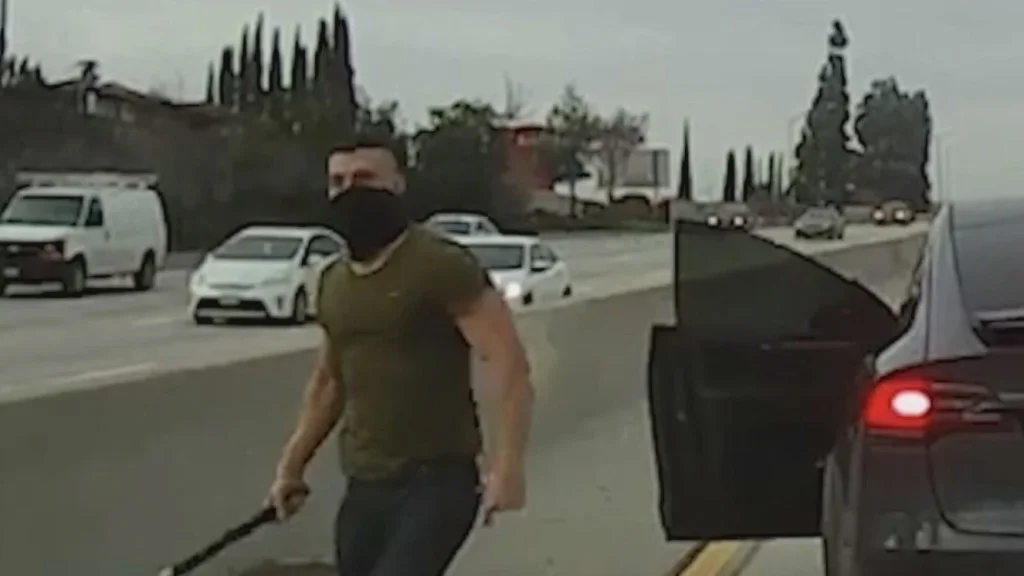
What Drives a Man to Rage Across Continents? The Tesla Driver’s Latest Fury
In a shocking turn of events that bridges states and raises alarms about unchecked aggression, a notorious driver known for his Tesla-fueled road rage has struck again, this time in the tropical paradise of Hawaii. This incident not only highlights the escalating dangers of road rage but also questions the effectiveness of the justice system in curbing repeat offenders.
The story unfolds in Kakaako, Hawaii, where 35-year-old Diane Ung was teaching her 18-year-old daughter how to parallel park. As the Tesla sped by at alarming speeds, nearly clipping the vehicle, Ung's daughter instinctively yelled, "Slow down!" This simple outburst triggered a violent response from the driver, later identified as 39-year-old Nathaniel Radimak. Surveillance footage reveals Radimak making a U-turn, approaching the car, and escalating the confrontation. According to Ung, Radimak reached into the vehicle and punched her daughter in the face, all while her seven-month-old grandchild slept in the back seat.
Ung, in a desperate bid to protect her family, confronted Radimak. She recounted the terrifying moment: "I had my coffee in my hand... threw it at his car, and he came running across the street, struck me like a Superman punch right inside my face. I fell down to the ground, big gash in my head." The attack left Ung and her daughter physically injured and emotionally scarred, with Ung emphasizing, "Nobody ever deserves to be that angry and take it out on a young person." Honolulu police swiftly arrested Radimak, charging him with unauthorized entry into a motor vehicle, two counts of assault, and contempt of court.
This incident is particularly alarming given Radimak's history. Previously convicted in Southern California for multiple road-rage attacks, he was sentenced to five years in prison in 2023 but served only 10 months due to prison overcrowding. Attorney Gloria Allred, representing some of his earlier victims, commented, "This is someone who apparently remains dangerous, who has not learned his lesson." Her words underscore a pattern of escalating behavior, as Honolulu defense attorney Megan Kau added, "When you get away with something bad, your actions only escalate." Witnesses like businessman Guy Martinez echoed these concerns, warning that such incidents could lead to fatalities if not addressed.
The comparison between Radimak's past and present actions reveals a troubling trend: despite legal interventions, including a driver's license suspension in Hawaii for prior traffic violations, he continues to pose a threat. This raises critical questions about rehabilitation, parole systems, and the need for stricter measures against habitual offenders. Road rage, once a localized issue, now appears to follow individuals across state lines, potentially influenced by factors like traffic congestion and personal stressors.
In summary, this Hawaii assault serves as a stark reminder of the real-world dangers of road rage and the importance of accountability. What more must happen before systemic changes are made? We invite readers to share their thoughts: Have you witnessed similar incidents, and what solutions do you propose? Leave a comment below and help spark a conversation on road safety and justice.